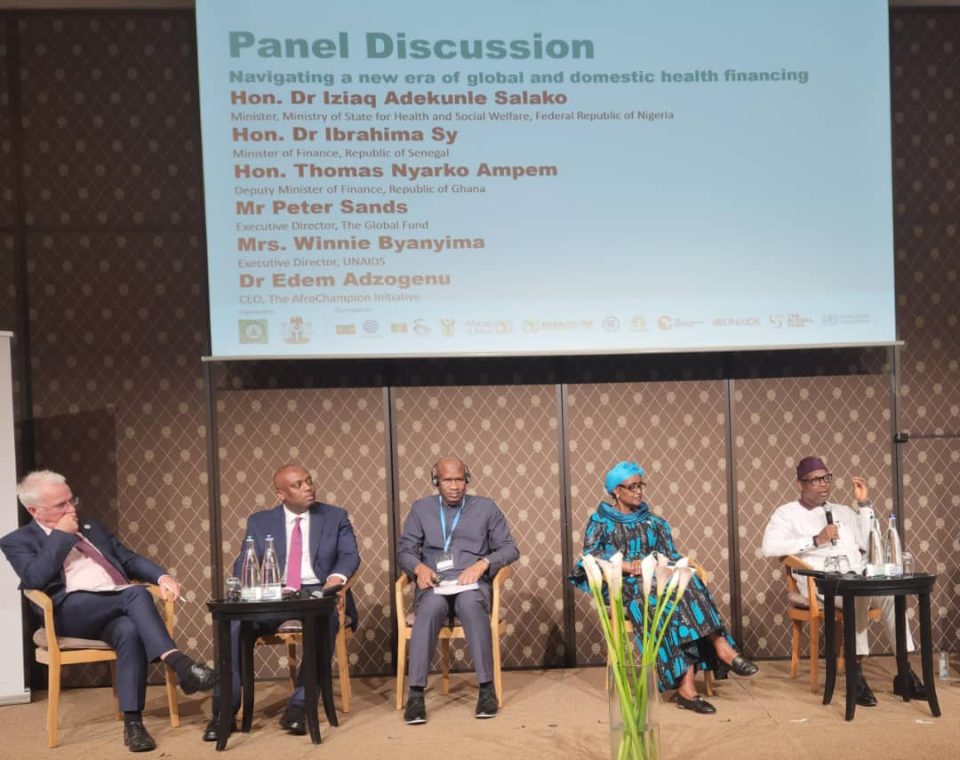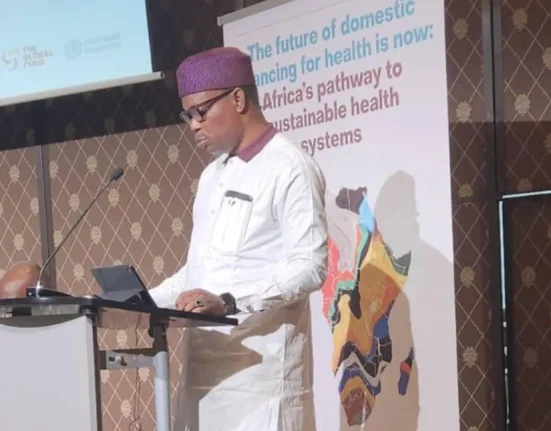Nigeria has taken a prominent position on the global stage in the ongoing campaign to overhaul health financing systems, as the country’s Minister of State for Health and Social Welfare, Dr. Iziaq Adekunle Salako, delivered a compelling keynote address at a high-profile side event during the 78th World Health Assembly (WHA78) in Geneva, Switzerland. The event, which drew participation from global development partners and international health leaders, was co-hosted by Nigeria’s Federal Ministry of Health and Social Welfare. It focused on advancing the discourse around domestic financing models for resilient and equitable health systems, particularly in Africa.
Speaking on behalf of the Nigerian government, Dr. Salako highlighted the bold health sector reforms being championed under President Bola Ahmed Tinubu’s Renewed Hope Agenda. The minister stressed the urgent need to curb the country’s staggering reliance on out-of-pocket health expenditures, which currently stand at an alarming 72% of total health spending, one of the highest figures globally. According to him, Nigeria is determined to build a healthcare system that is inclusive, transparent, and adequately funded, ensuring that no citizen is left behind in accessing essential health services.
Dr. Salako pointed to key policy actions already underway, including the implementation of the National Health Act of 2014 and the operationalisation of the National Health Insurance Authority Act of 2022. These legal frameworks, he said, have laid the groundwork for meaningful progress, with health insurance enrolment witnessing a 15% uptick and health insurance agencies now established across all 36 states and the Federal Capital Territory.
He also spoke on the restructuring of the Basic Health Care Provision Fund (BHCPF), which he described as more efficient, timely, and transparent in disbursing funds to support primary healthcare and emergency services nationwide. Nigeria, he revealed, is exploring innovative financing models including levies on sugary drinks, tobacco products, and telecom services to diversify revenue streams. Health trust funds and impact investment bonds are also under consideration as the country seeks to secure long-term, sustainable funding for health initiatives.
In a significant move that underscores Nigeria’s growing leadership in global health diplomacy, Dr. Salako disclosed that the country has been chairing consultations with the 194 member states of the World Health Organization on a new resolution aimed at strengthening domestic health financing. The resolution, which Nigeria has co-sponsored, is expected to be presented formally during WHA78 and seeks to promote greater national investment in health, while also improving the tracking and documentation of financing data.
He praised the administration of President Tinubu for prioritising healthcare despite shrinking global development aid, noting that an additional $200 million has been earmarked to shield critical health programmes from the adverse impact of donor funding cuts. The minister stressed that digital health innovations, community-driven budgeting, and robust accountability systems are being scaled up to reinforce the integrity and effectiveness of these interventions.
In his words, “Nigeria’s advocacy for increased domestic investment in health has translated into a global resolution that reaffirms our shared responsibility to achieve Universal Health Coverage by 2030. Our mission is clear, secure health for all through collective action, innovation, and unwavering commitment.”
Meanwhile, Nigeria’s influence at WHA78 extended beyond speeches, as Dr. Salako participated in several high-level engagements aimed at deepening global health cooperation. At a roundtable hosted by the Commonwealth Secretariat on the future of the health workforce, young Nigerian pharmacist Inofai Ogbeche and the Lafiya Foundation represented the country’s growing youth involvement in global health policy. The Minister was also present at a World Health Expo side event on fostering public-private partnerships in health, where he appeared alongside Dr. Ify Osunkwo of the World Coalition on Sickle Cell Disease, reinforcing Nigeria’s leadership in disease advocacy.
In another key engagement, Dr. Salako met with the Chair of the Polio Oversight Board of the Global Polio Eradication Initiative to review ongoing eradication efforts in the Lake Chad Basin, alongside Dr. Chikwe Ihekweazu, former NCDC boss and now a leading figure at the WHO. The meetings underscore Nigeria’s proactive stance in global health governance and its readiness to offer leadership in critical public health issues.
Also during WHA78, Nigeria renewed its commitment to drastically reducing maternal and child mortality. At a strategic panel session focused on maternal, newborn, and child health, themed “Innovate to Scale: Bending the Curve on MNCH SDGs,” Dr. Salako outlined Nigeria’s approach to scaling locally-driven, high-impact solutions. He spotlighted the Maternal and Newborn Mortality Reduction Initiative (MAMII), launched in 2024, as a major step forward. The programme targets 172 local government areas with the highest maternal death rates and employs digital tools, improved referral systems, and community engagement to increase facility-based deliveries and skilled birth attendance.
Additionally, the minister discussed progress on the Safer Births Initiative, which is integrating life-saving technologies like fetal heart monitors and neonatal resuscitation kits in Nigerian hospitals. These are complemented by simulation-based clinical training for frontline health workers, a strategy aimed at bridging the gap between knowledge and service delivery, especially in rural communities. Importantly, Dr. Salako noted that Nigeria’s interventions are deeply rooted in cultural contexts, working with traditional birth attendants and community leaders to reshape how maternal care is delivered at the grassroots.
He reiterated Nigeria’s resolve to make innovation and technology accessible to all, not just the privileged few. “Our vision is to institutionalise scalable solutions and foster partnerships that prioritise local needs and global learning. Innovation must be democratized if we are to truly save lives,” he stated.
Dr. Salako concluded his engagements with a rallying call for global solidarity, equitable funding, and enhanced collaboration, especially among countries of the Global South. With its growing influence in global health conversations and its homegrown reforms gaining traction, Nigeria is positioning itself as a continental leader pushing for transformative change in how health systems are financed, managed, and delivered.



